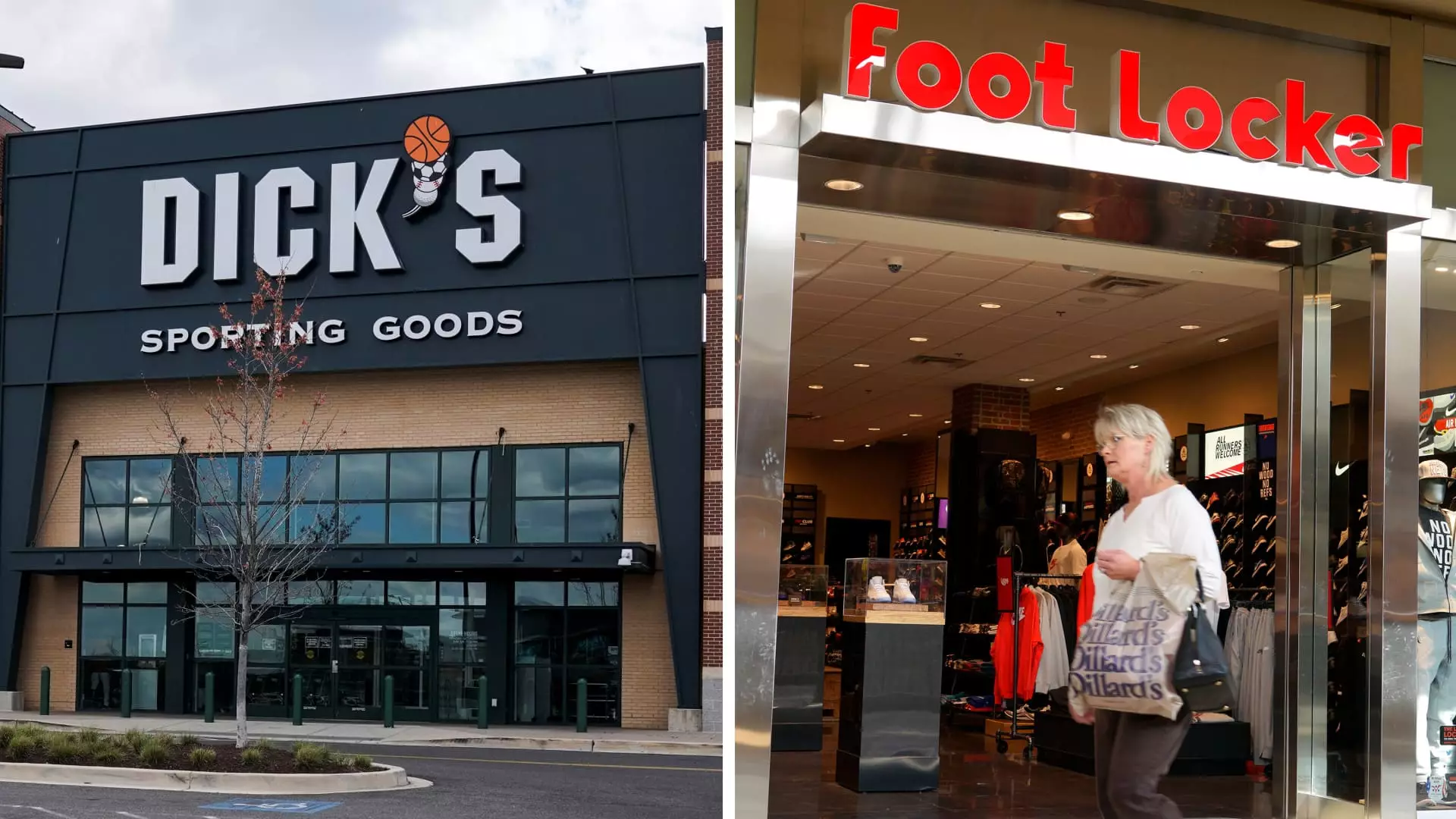In today’s polarized debate over corporate consolidation, central-left voices often emphasize the supposed benefits of monopolistic growth, painting mega-mergers as engines of efficiency and innovation. However, a critical examination reveals that such narratives dangerously overlook the real risks posed to consumers and small businesses. The proposed $2.4 billion acquisition of Foot Locker by Dick’s Sporting Goods exemplifies this peril. While proponents may argue that the market share remains modest, beneath this superficial veneer lies a troubling trend: the erosion of competitive choice and the potential for price gouging. A true marketplace is defined not just by numbers, but by the dynamic tension between giants and independent retailers. When this balance is disrupted, consumers suffer in the form of higher prices and diminished options.
The Flawed Narrative of ‘Market Power’ and Overlooked Risks
Mainstream perspectives tend to dismiss merger concerns unless market share exceeds a certain threshold—often 30 percent—assuming that below this, competition remains intact. This reasoning, however, is flawed. The consolidation within the athletic footwear and sporting goods sector suggests a rapid narrowing of market diversity, which isn’t accurately captured by simple percentage figures. The strategic moves by JD Sports and the growing dominance of firms like Dick’s and Foot Locker threaten to form a duopoly that controls the majority of retail outlets in the U.S. Such control allows these companies to dictate terms fiercely—potentially squeezing suppliers and reducing the bargaining power of small, independent stores. It’s not just about numbers but about the prolonged systemic imbalance that benefits a few at the expense of many.
The Human Cost of Market Consolidation
Warren’s concern about consumer hardship isn’t just political posturing; it reflects a profound socioeconomic truth. In an era where inflation outpaces wages, and families are forced to make sacrifices on essentials, the prospect of higher athletic footwear prices feels less like a negligible concern and more like an additional burden. When retail giants consolidate, they gain leverage to raise prices without fear of losing customers—a practice that could deepen economic disparities. This is especially troubling given that the current economic climate already weighs heavily on working-class households, many of whom anticipate pain at checkout counters amid rising inflation. The narrative of market efficiency thus veers dangerously into the realm of consumer exploitation the moment these mergers are approved without adequate restraint.
The Monopoly in the Making: A Threat to Small Businesses
One often-overlooked consequence of such consolidations is the threaten to the very fabric of small and independent retailers. These businesses rely heavily on fair dealings with suppliers, and a handful of powerhouse corporations wield disproportionate influence over supply chains. When Dick’s and Foot Locker merge, their combined buying power can skew market conditions, forcing smaller competitors to accept less favorable terms or risk losing access altogether. This consolidation not only stifles innovation and entrepreneurship at the local level but also reduces consumer diversity. When options diminish, consumers are left with a few homogenized choices, rather than vibrant, neighborhood-centric stores that foster competition and community engagement.
The Political and Regulatory Double Standard
Historically, regulatory agencies like the FTC and DOJ oscillate between vigilance and complacency. Under President Biden, there was a noticeable shift toward scrutinizing and blocking high-profile mergers—an approach grounded in protecting consumer interests. However, some speculate that a shift may be underway, especially with a new administration that might regard large mergers more leniently. The approval of the Nippon Steel-U.S. Steel deal under Trump’s tenure, despite previous opposition, signals a potential shift away from stringent oversight. This inconsistent regulatory rigor is dangerous, as it emboldens corporate giants to pursue aggressive expansion strategies under the false premise that market share below a certain threshold is inherently safe. Such a laissez-faire approach risks enabling monopolistic practices that ultimately undermine consumer choice and economic fairness.
The Power of Public Opinion and Market Reality
The real question is whether regulatory bodies will prioritize the consumer’s right to a competitive marketplace or succumb to the lobbying power of corporate conglomerates. Public sentiment, driven by rising prices and economic hardship, increasingly favors stricter oversight. Yet, the industry’s narrative—supported by some experts—claims that such mergers are unlikely to threaten competition significantly. This optimistic perspective dismisses the subtle, long-term effects of market consolidation: reduced competition leads to higher prices, fewer innovations, and a weaker economy overall. It’s a calculated gamble with wide-reaching consequences, where the true losers are everyday consumers and small business owners, rather than the corporate giants who stand to benefit most from increased market control.
The argument for unrestrained corporate expansion ignores a fundamental truth: consumer sovereignty is the backbone of a free market. When large companies grow unchecked, they do more than just reshape industry landscapes—they diminish the very freedom consumers rely on. In this way, the push for consolidation under the guise of efficiency often masks a more troubling reality: the gradual loss of market diversity and consumer choice, which can have far-reaching societal implications.

